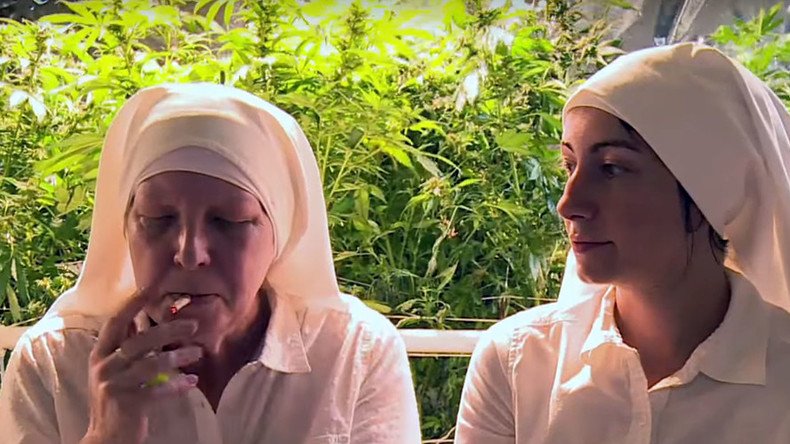Holy toke: Weed-growing 'nuns' defy California town's cannabis cultivation ban

A California town’s crackdown on cannabis commerce is no match for two weed-growing 'nuns' who say their herb heals, and that the rules do not apply to them.
Despite a ban on cannabis cultivation in the town of Mercad, the Sisters of the Valley 'nuns' continue to grow their plants.
"Sisters of the Valley".... a group of pot harvesting nuns 🌳 pic.twitter.com/s1gkSmmhQr
— Outfits (@FireFitsDaily) May 24, 2016
“This ban does not apply to us and so we’ve been operating straight through it,” they told RT.
Sister Darcey and Sister Kate have been growing marijuana and creating cannabidiol (CBD)-infused products for three years.
They claim their marijuana has low levels of tetrahydrocannabinol (THC) which gives the ‘high’ effect associated with marijuana.
“Our medicine is medicine, and it is non-psychoactive,” they explained. “We’re dealing with what is actually hemp but really we advocate for whole plant legalization.”
READ MORE: Sister Act-ivists: Cannabis-growing 'nuns' campaign to save their crop
However, the 'nuns' are not the traditionally religious kind but rather 'spiritual'.
They follow their own 'holy trinity' which includes honoring mother earth, honoring the people through making medicine and healing, and their progressive activism.
The nuns dedicate a portion of their week to “the good fight” for the poor people around them.
Vendono prodotti a base di Cannabis, sono le "Sisters of the Valley" ultima follia del business californiano: TOP pic.twitter.com/XeU6ZUmPGG
— Federica De Lorenzi (@federicainrome) June 1, 2016
The Sisters of the Valley’s CBD salve was designed to provide arthritis pain relief, but users report it prevents migraines, toothaches and earaches.
The sisters say a prayer over each bottle before it is sent to customers, but the holy salve doesn’t come cheap, at $95 for eight ounces, and the CBD oil costs $85 for two ounces.
Sister Kate told ABC that she makes about $1,000 a day, but that she works legally with banks.
In states where medical marijuana is legal, there has been a 25 percent drop in painkiller related deaths, according to a 2015 study by University of Pennsylvania and John Hopkins researchers in JAMA Internal Medicine journal.












